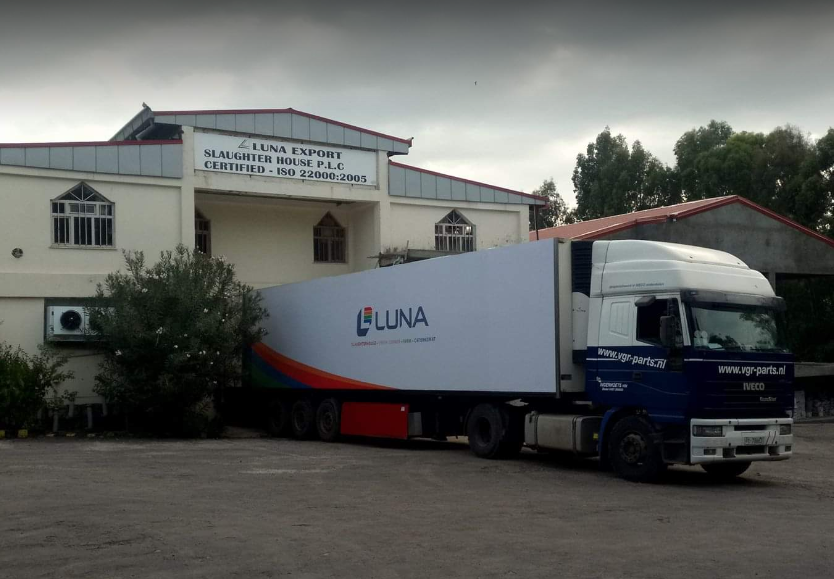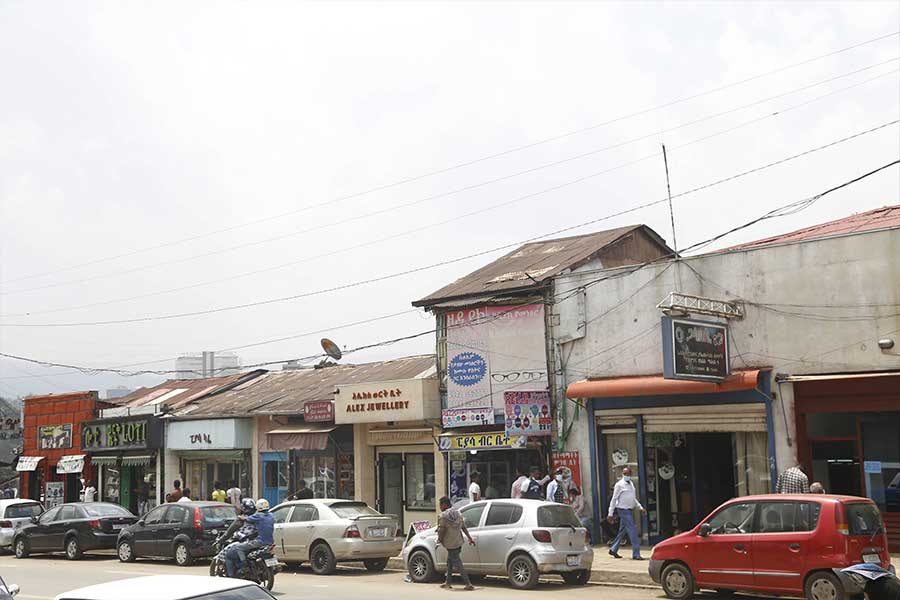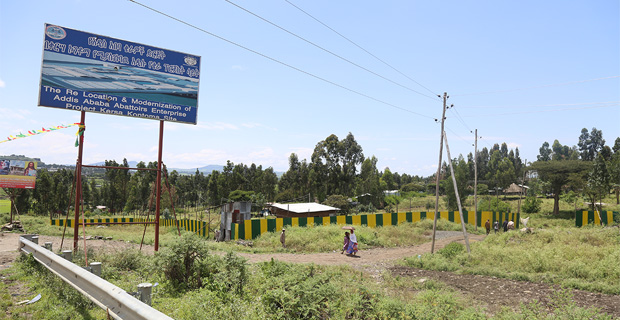
Radar | May 23,2020
Mar 14 , 2020
By ELIAS TEGEGNE ( FORTUNE STAFF WRITER )
 Luna Export Slaughterhouse, a company known for its abattoir and a chain of greengrocer businesses, received a food safety award in Seattle, a city in the United States.
Luna Export Slaughterhouse, a company known for its abattoir and a chain of greengrocer businesses, received a food safety award in Seattle, a city in the United States. Luna Export Slaughterhouse, a company known for its abattoir and a chain of greengrocer businesses, received a food safety award in Seattle, a city in the United States.
Global Food Safety Initiative (GFSI), a private trade group, and the sponsor of the award, Green Fence, awarded the company in recognition of its efforts to improve its food safety management systems and work toward greater market access.
Companies from Africa, Asia, Latin America, Europe and North America applied for the award six months ago. A team from the Initiative came to Ethiopia to visit the slaughterhouse after reviewing documents that were submitted by the company.
Luna Export, founded in 2004, got the award after updating its production line, training its staff in animal welfare and using modern sanitation techniques to significantly improve the shelf life of its products. The company started the transformation three years ago.
Luna, which operates with 250 employees, exports its products to Saudi Arabia and United Arab Emirates. Last year it exported 17 million dollars worth of meat. It has four subsidiaries that employ 1,200 people.
Tesfalidet Hagos, founder and general manager of Luna, received the award in a ceremony that was held with the presence of 1,000 industry leaders. The company received the award with three more companies from Ukraine, Argentina and Shanghai.
"The award will develop the confidence of our customers and build their trust," he said. "It also helps us to get new market opportunities."
Luna slaughterhouse can butcher 250 goats and sheep an hour and 1,500 to 2,000 a day. The house has a white and red zone. The slaughtering process is conducted in the red zone, while the slicing of the meat and other processes are conducted in the white zone.
The company also documents its process from receiving the cattle to the end product. This includes recording the weight of the cattle when it is received, who provided it, and how long it took to be processed. It uses water and chemically treated materials to clean the working area as well.
"We focus on food safety from the first chain of production to the end recipient of the product, keeping hygiene as a priority standard," said Tesfalidet.
Luna, which operates with 250 employees, exports its products to Saudi Arabia and United Arab Emirates. Last year it exported 17 million dollars worth of meat. It has four subsidiaries that employ 1,200 people.
The company has a plan to rent ranches and hire contract farmers to herd the cattle it will slaughter after supplying them with all the necessary inputs that are needed for the growth and safety of the livestock, according to Tesfalidet.
Data indicates that Ethiopia’s income from meat and meat products dropped by 12.8pc from the same period last year due to an 11.2pc and a 1.8pc decline in volume and unit price, respectively. As a result, the share of meat and meat products in total merchandise export earnings stood at 3.3pc.
Kaleab Baye (PhD), a food science lecturer at Addis Abeba University, says that such types of awards play an important role for local companies that are involved in the slaughtering export business.
Previously a lot of products got spoiled before they arrived in the international markets due to a lack of adequate safety measures, according to Kaleab.
"The award will help the company widen its export market due to the certificate it received," said the expert.
Kaleab added that food safety and control should not only focus on the export market and should consider the local market for food items supplied for local consumption.
PUBLISHED ON
Mar 14,2020 [ VOL
20 , NO
1037]

Radar | May 23,2020

My Opinion | Nov 25,2023

Fortune News | Nov 23,2019

Fortune News | Jun 26,2021

Radar | Sep 06,2020

Fortune News | May 25,2019

Radar | Feb 23,2019

Viewpoints | Jul 08,2023

Radar | Oct 03,2020

Fortune News | Apr 15,2023

Dec 22 , 2024 . By TIZITA SHEWAFERAW
Charged with transforming colossal state-owned enterprises into modern and competitiv...

Aug 18 , 2024 . By AKSAH ITALO
Although predictable Yonas Zerihun's job in the ride-hailing service is not immune to...

Jul 28 , 2024 . By TIZITA SHEWAFERAW
Unhabitual, perhaps too many, Samuel Gebreyohannes, 38, used to occasionally enjoy a couple of beers at breakfast. However, he recently swit...

Jul 13 , 2024 . By AKSAH ITALO
Investors who rely on tractors, trucks, and field vehicles for commuting, transporting commodities, and f...

Oct 25 , 2025
The regulatory machinery is on overdrive. In only two years, no fewer than 35 new pro...

Oct 18 , 2025
The political establishment, notably the ruling party and its top brass, has become p...

Oct 11 , 2025
Ladislas Farago, a roving Associated Press (AP) correspondent, arrived in Ethiopia in...

Oct 4 , 2025
Eyob Tekalegn (PhD) had been in the Governor's chair for only weeks when, on Septembe...